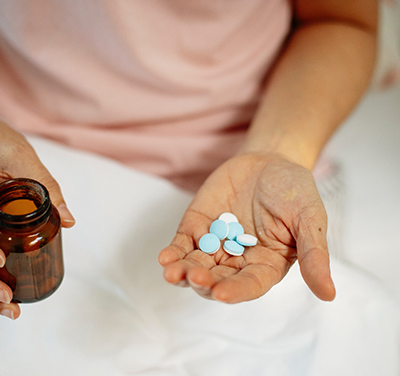Although depression often makes you feel isolated, you’re not alone. Clinical depression affects about 7% of adults and most have severe symptoms that affect their daily life. The team at New Hope Clinical Research are actively involved in clinical trials to find new medications to effectively relieve your depression. If you’d like to participate in a clinical trial, call the clinic in Charlotte, North Carolina, or book an appointment online.
New Hope Clinical Research
Research Clinic located in Charlotte, NC

Depression Q & A
What causes depression?
Depression is associated with an imbalance in brain chemicals, which is why medication to restore deficient chemicals can help lift your depression.
However, genetics may increase your tendency to become depressed and many factors trigger depression. These are a few examples of life changes and events that can cause depression:
- Retirement
- Death of friends and loved one
- Social isolation
- Medications
- Health problems
Older adults are especially vulnerable to depression, yet depression should never be considered a normal part of aging. At any age and no matter what life challenge has caused your depression, treatment can help.
When should you seek help for depression?
Sometimes it’s hard to know whether you have the everyday blues or depression. If the death of a friend or loved one caused your depression, you may not be sure whether your feeling is normal grief or depression.
In addition to feeling sad or depressed, if you have one or more of the following symptoms and they last longer than two weeks, it’s time to call your doctor and ask for help:
- Loss of interest in activities you usually enjoy
- Feeling hopeless, worthless, or guilty
- Feeling fatigued or low in energy
- Sleeping too little or too much
- Eating more or less than usual
- Difficulty concentrating or making decisions
- Weight gain or loss
- Feeling agitated or restless
- Thinking about suicide
These symptoms are only guidelines. Some older adults don’t feel sad, for example, but they have very low energy, lack of motivation, and forget to eat.
How can clinical trials improve treatment for depression?
The first line of treatment for depression includes medications such as selective serotonin reuptake inhibitors (SSRIs) and selective norepinephrine reuptake inhibitors (SNRIs), which help balance brain chemicals needed to improve your mood.
Clinical trials are conducted to determine whether investigational medications that have been developed are safe and effective. Testing may also be designed to learn whether existing medications may help in new ways.
Some clinical trials study the ability of drugs to prevent relapse, while others evaluate the potential of medications for patients whose depression is resistant to first-line medications. In other words, clinical trials are the path for new and better treatments for depression.
Before a clinical trial begins, it’s carefully planned and designed, then the study is approved by the US Food and Drug Administration, so you can be confident that every step is taken to ensure your safety.
If you’d like to participate in a clinical trial or to learn more about studies for new depression treatments, call New Hope Clinical Research or book an appointment online.








